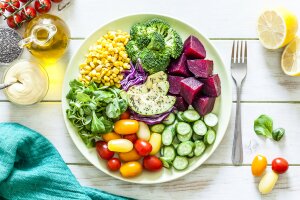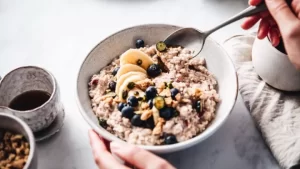For many people, eating healthfully is a priority.
Yet, occasionally this intense attention turns into orthorexia nervosa, a severe fixation with good eating that frequently results in undernutrition and hinders everyday functioning.
The term “orthorexia,” first used in 1997, refers to an unhealthy, extremely restrictive diet that places more emphasis on nutritional quality than quantity, as is typical of most diets. This condition has the potential to harm a person’s physical and mental health. The restrictions imposed on them by their own stringent dietary guidelines make it difficult for them to live and enjoy life. Their ability to go out and freely enjoy social events, like a Christmas party or supper with friends, is increasingly hampered by these constraints.
Yet, occasionally this intense attention turns into orthorexia nervosa, a severe fixation with good eating that frequently results in undernutrition and hinders everyday functioning.
There is less of a gender difference with orthorexia than with other eating disorders, according to Dr. Tom Hildebrandt, a professor of psychiatry and director of Mount Sinai’s Center of Excellence in Eating and Weight Disorders in New York City. Orthorexia primarily affects adults and more women than men.
Is It Healthy Eating or Orthorexia?
Healthy eating is an admired lifestyle choice and one many aspire to. The willpower, discipline and level of planning needed to strictly maintain this can be a challenge, especially when prepackaged, processed foods are plentiful and often easier both on the wallet and the clock.
Flexibility plays an important role in being able to sustain a healthy lifestyle long term, but for those with orthorexia, that flexibility is nonexistent.
They cannot give themselves a “free pass” to indulge once in a while in a favorite ice cream or slice of pizza. They tend to overanalyze nutrition labels and have a rigid, inflexible relationship with food that is characterized by a restrictive diet and extreme avoidance of foods they deem unhealthy. The idea of eating these foods can give them severe anxiety and distress, as well as a decreased sense of self-worth.
The type of food restrictions depends on the individual and, typically, the list of unacceptable foods or ingredients usually grows over time. Examples of restrictions may include:






